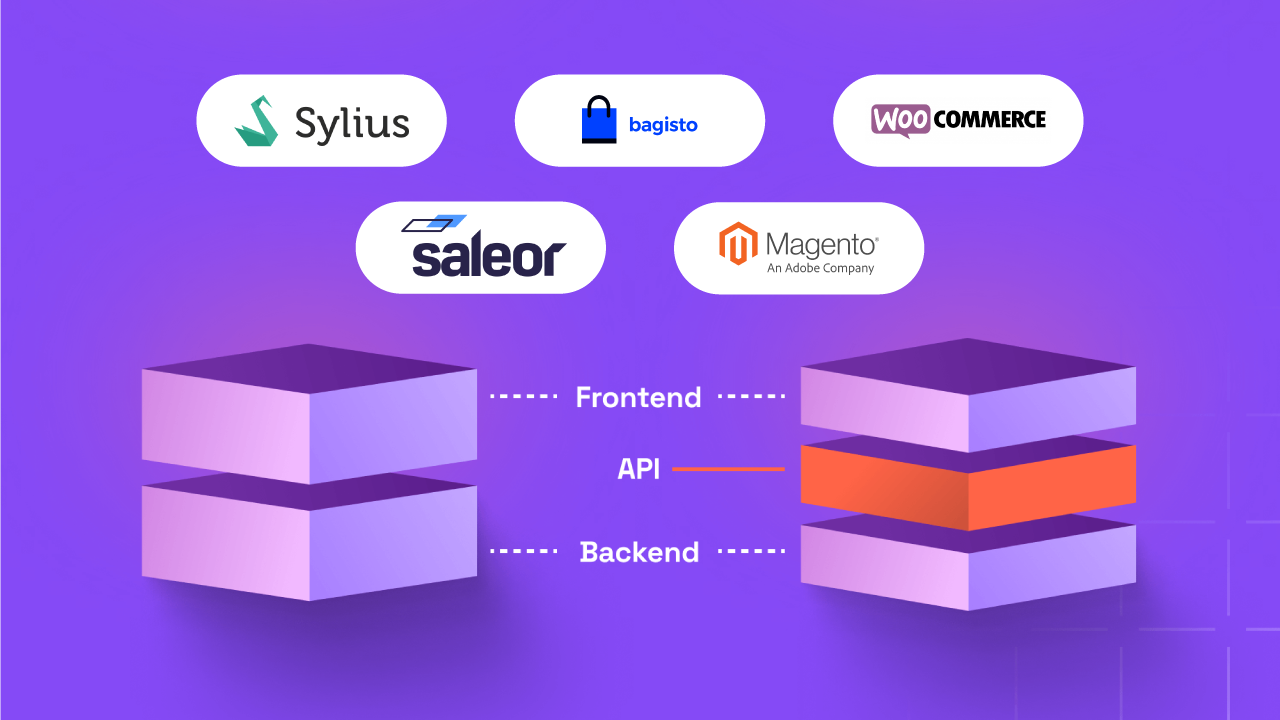Personalization in B2B eCommerce: What Works and What Doesn’t

“The reason why personalization in B2B eCommerce works is because we are still selling to persons.”
Jason Hein from Bloomreach on the 11th episode of Shift+Click podcast.
In an industry heavily reliant on personal relationships, there is no wonder why personalization should still be a significant part of the equation when those offline transactions are taken online.
While B2B eCommerce has seen staggering growth in terms of technology investment and adoption by B2B organizations and their buyers, there are still areas that need improvement. Customer experience is one big chunk of that.
You can listen the full podcast here:
According to a recent study conducted by B2B Online, it was found that only 11% of manufacturers and distributors do not currently have a B2B eCommerce solution.
This suggests that 89% B2B companies – spanning from large enterprises to SMBs have already adopted B2B eCommerce.
However, the same study also revealed that 69% of B2B companies are investing in technology upgrades to leverage data and analytics, aiming to enhance their customer experience through personalization.
This indicates that we have clearly entered the second phase in growth and adoption of B2B eCommerce.
We are no longer discussing the mere acquisition of a web shop. Instead, the focus has shifted towards enhancing the online experience to boost conversion rates, foster customer loyalty, and increase the Average Lifetime Value (ALTV).
Personalization in B2B eCommerce is More Complex Than in B2C
B2B eCommerce is inherently complex in all aspects. Similarly, when we talk about personalization, we encounter this element of complexity because we are talking about 2 different entities we are dealing with.
- The person who is researching/visiting our website/placing orders.
- The team, company, or organization that we are ultimately selling to.
In B2B digital commerce, one customer (the buyer company) may include a team of buyers in the buying committee. Each member of this committee will influence the sale. Therefore, you’ll need to personalize and tailor the digital experience for these individuals while ensuring relevance in the context of their respective companies.
Now, that was a mouthful just to word it out. Imagine implementing it.
It All Starts with Segmentation
Due to these complexities in B2B eCommerce, companies are using a personalization strategy that starts with segmentation.
By grouping their customers into different segments, B2B companies can then gather behavioral data about these segments. This data is used to make inferences and learn about these segments and truly understand what they do and what kind of content they prefer.
Consider a company that produces industrial equipment. They segment their customers into different categories based on industry, such as ‘Automotive,’ ‘Aerospace,’ and ‘Construction.’
Once they have segmented the customers, they can now gather the data needed to understand their unique needs and tailor the content based on that. For example, they may learn which products the Automotive segment is interested in and so, when they onboard a new customer in that segment, they’ll make sure they only serve those products relevant to the industry.
While it’s always best to create larger segments when starting out, the goal should be to narrow down the segments once data starts coming in so that content can be laser targeted to the person visiting the web store.
The Role of Generative AI in Personalization in B2B eCommerce
Generative AI plays a pivotal role in the realm of personalization and segmentation. Here’s how generative AI can significantly impact these efforts:
- Content Generation: One of the most prominent ways in which generative AI aids personalization is by generating tailored content at scale. Whether it’s product recommendations or website content, AI algorithms can analyze vast amounts of data to create personalized messages for different customer segments. For example, it can craft unique product descriptions based on customer preferences within specific segments, ensuring that the content resonates with the intended audience.
- Segmentation Refinement: Generative AI can assist in refining customer segmentation. By analyzing behavioral data and patterns, AI can identify hidden relationships among customers, leading to more precise and meaningful segmentation. This refined segmentation allows businesses to create hyper-personalized experiences that cater to even more granular customer groups.
- Real-time Personalization: Generative AI enables real-time personalization by continuously analyzing customer interactions and adjusting content accordingly. For instance, it can dynamically update website content, recommend products based on browsing behavior, and customize marketing messages in real time. This ensures that customers receive the most relevant and up-to-date information, enhancing their overall experience.
- Chatbots and Customer Support: AI-powered chatbots and virtual assistants leverage generative AI to provide personalized assistance to customers. They can understand customer inquiries, preferences, and past interactions to offer tailored responses and solutions. This not only improves customer satisfaction but also reduces response times and operational costs.
- Localization and Multilingual Content: For companies operating globally or targeting diverse markets, generative AI can assist in generating localized and multilingual content. It can adapt marketing materials, product information, and customer communications to cater to different languages, cultures, and regional preferences, thereby expanding market reach.
Sales Should Focus on Value Added Activities, not Mundane Tasks
Personalization in B2B eCommerce traditionally depended on sales.
However, by automating routine tasks and leveraging segmentation and AI for personalization, sales professionals can reclaim time and build stronger customer relationships by offering consultative guidance that will help eventually differentiate the business.
This strategic shift not only maximizes the efficiency of sales resources but also positions salespeople as trusted advisors, fostering long-term business success in a competitive marketplace.
Making Technology Ready for Personalization in B2B eCommerce
Many eCommerce tools and technologies already exist that help businesses create a personalized experience. But those technologies are inherently built for B2C personalization.
This is where it becomes a problem.
When you take a technology that’s built for B2C and apply it for B2B, you start realizing that there are obvious gaps.
Given that in B2B we need a segmented approach to personalization, we need technologies that are specifically built for that.
The past few years, we saw several companies pop up with offerings that are specifically for B2B eCommerce. This includes our flagship product B2BWoo, Bloomreach, and others.
Key Takeaways of Personalization in B2B eCommerce
In the dynamic landscape of B2B eCommerce, personalization, segmentation, and the integration of generative AI have emerged as game-changers. These elements, inspired by the notion that we are still selling to individuals, have propelled businesses toward a second phase of growth and innovation.
To fully realize the potential of these strategies, partnering with experts in B2B eCommerce Development Services can provide the technical prowess and insights needed for effective implementation.
As complexity looms in B2B transactions, segmentation becomes the foundation upon which data-driven insights can be harnessed to create tailored experiences.
Meanwhile, generative AI steps in to revolutionize content generation, real-time personalization, and even multilingual adaptability.
And as these technological advancements take the stage, sales professionals are liberated from mundane tasks, allowing them to focus on value-added activities, becoming trusted advisors, and cultivating lasting customer relationships.
In this evolving B2B landscape, the fusion of human expertise with cutting-edge technology promises a future where personalization thrives, businesses thrive, and customer experiences flourish.



